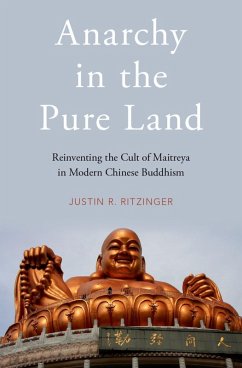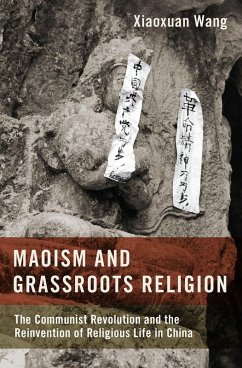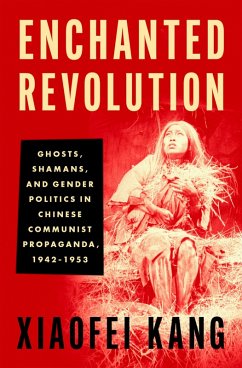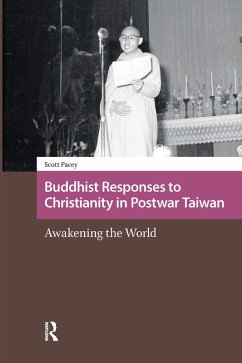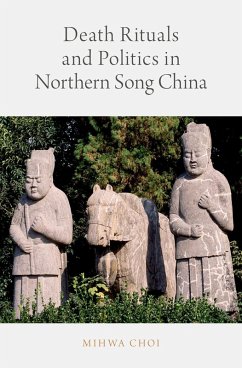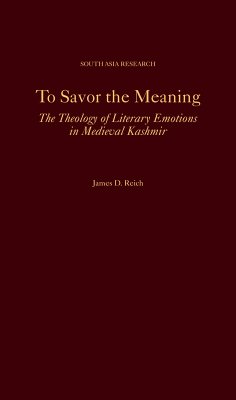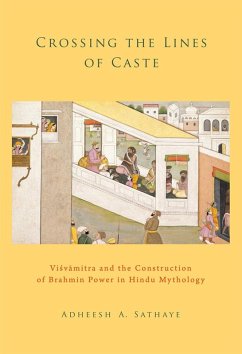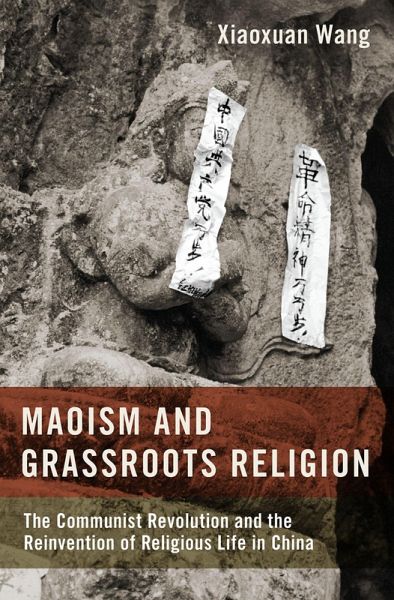
Maoism and Grassroots Religion (eBook, ePUB)
The Communist Revolution and the Reinvention of Religious Life in China
Versandkostenfrei!
Sofort per Download lieferbar
11,95 €
inkl. MwSt.
Weitere Ausgaben:

PAYBACK Punkte
6 °P sammeln!
Maoism and Grassroots Religion explores grassroots religious life under and after Mao in Rui'an County, Wenzhou of southeast China, a region widely known for its religious vitality. Drawing from unexplored local state archives, records of religious institutions, memoirs, and interviews, it tells the story of local communities' encounter with the Communist revolution, and its consequences, especially competition and struggles for religious property and ritual space. Rather than being totally disrupted, Xiaoxuan Wang shows, religious life under Mao was characterized by remarkable variety and une...
Maoism and Grassroots Religion explores grassroots religious life under and after Mao in Rui'an County, Wenzhou of southeast China, a region widely known for its religious vitality. Drawing from unexplored local state archives, records of religious institutions, memoirs, and interviews, it tells the story of local communities' encounter with the Communist revolution, and its consequences, especially competition and struggles for religious property and ritual space. Rather than being totally disrupted, Xiaoxuan Wang shows, religious life under Mao was characterized by remarkable variety and unevenness and was contingent on the interactions of local dynamics with Maoist campaigns--including land reform, the Great Leap Forward, and the Cultural Revolution. The revolutionary experience strongly determined the trajectories and development patterns of different religions, inter-religious dynamics, and state-religion relationships in the post-Mao era. Wang goes beyond the image of totalistic control and suppression, to show how Maoism is relevant to religious revitalization in the post-Mao era and, more broadly, the modern fate of Chinese religions and secularism in East Asia. Maoism permanently altered the religious landscape in China, especially by inadvertently promoting the localization and even (in some areas) expansion of Protestant Christianity, as well as the reinvention of traditional communal religion. Contrary to the popular image of total suppression and disruption during the Mao years, this book shows that religious changes under Mao were highly complex and contingent on a confluence of political campaigns, local politics and community responses.The post-Mao religious revival had deep historical roots in the Mao years, Wang argues, and cannot be explained by contemporary economic motives and cultural logics alone. This book calls for a new understanding of Maoism and secularism in the People's Republic of China.
Dieser Download kann aus rechtlichen Gründen nur mit Rechnungsadresse in A, B, BG, CY, CZ, D, DK, EW, E, FIN, F, GR, HR, H, IRL, I, LT, L, LR, M, NL, PL, P, R, S, SLO, SK ausgeliefert werden.




